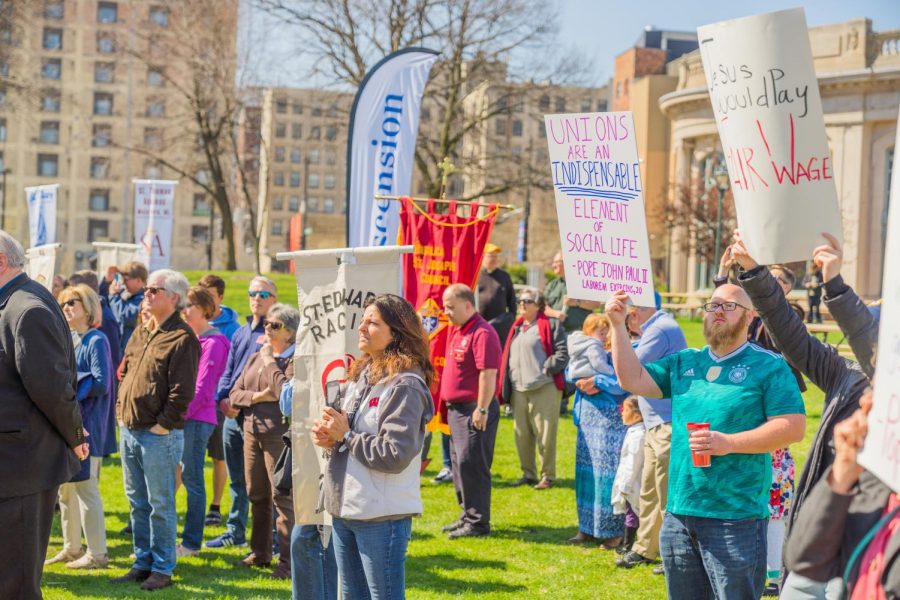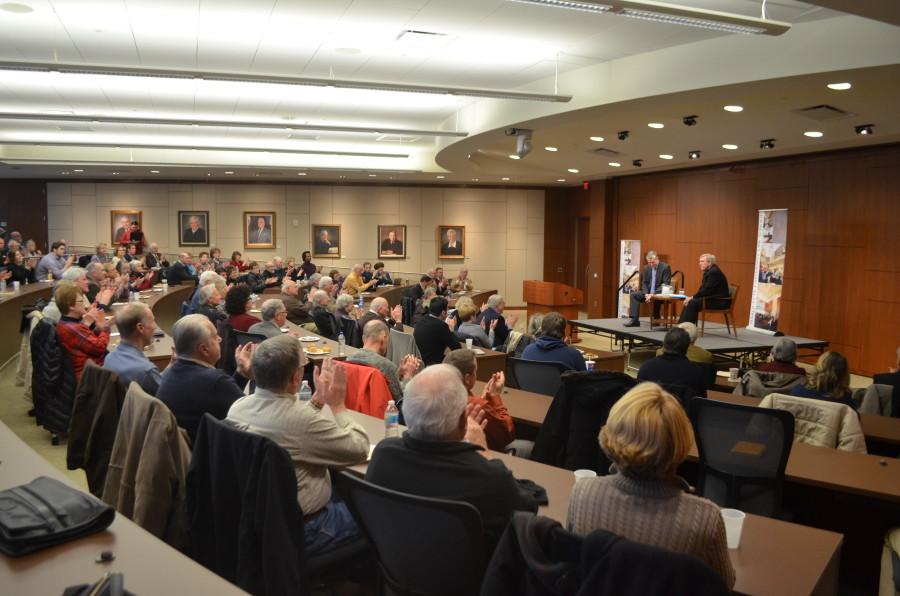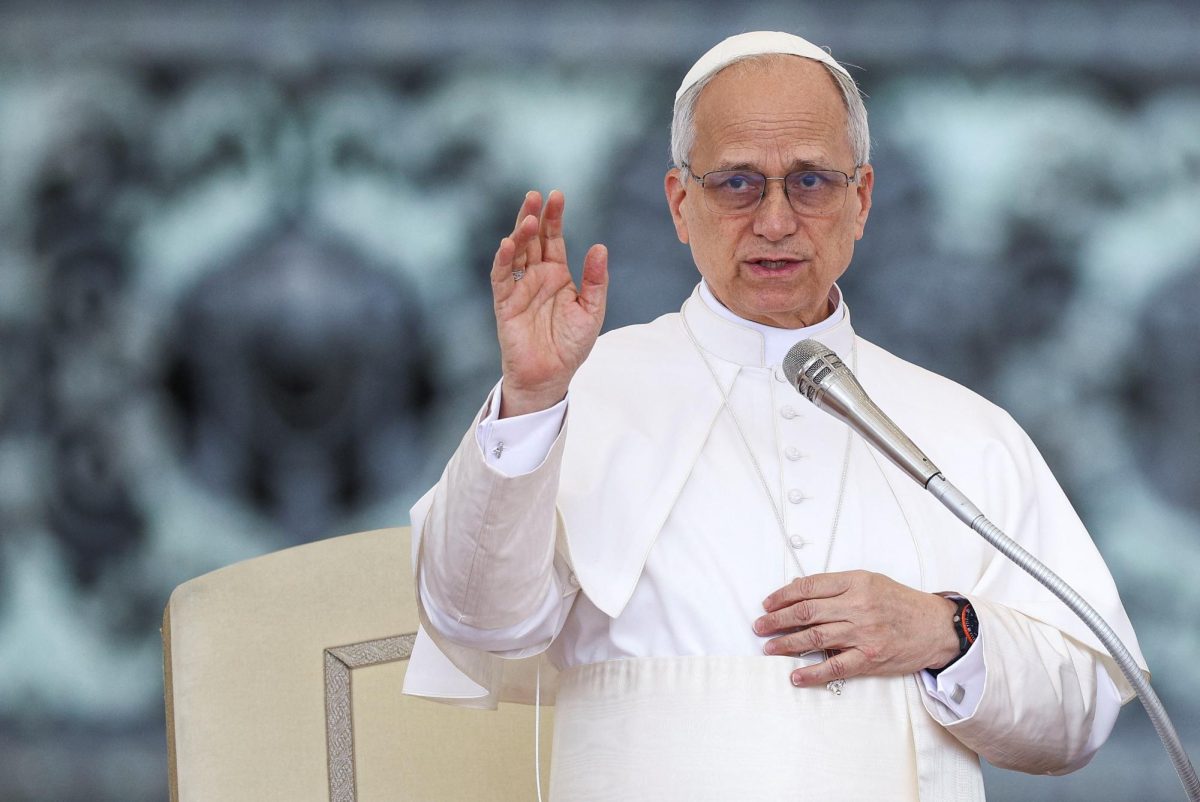Hearings proceeded Monday for the Archdiocese of Milwaukee’s federal Chapter 11 bankruptcy case. According to Jeff Anderson, the leading lawyer for sex abuse victims in the case, U.S. District Judge Rudolph Randa allowed for bankruptcy cases to move forward on the basis of fraud.
The archdiocese has argued that not all of the sexual abuse claims filed against it qualify for compensation according to federal bankruptcy laws.
“It is important for us to know which of these claims qualify for compensation under the bankruptcy laws,” said the Rev. Jerome Listecki, Archbishop of Milwaukee, in a May 15 update on Chapter 11 bankruptcy proceedings. “The only way to determine this is by filing what is called an ‘objection to claim’ motion with the court. If a particular claim or type of claim is not going to be allowed, then people need to know this.”
Anderson argued that the archdiocese has purposely forestalled compensating victims.
“We stand ready to work with each survivor to fight the next round of battles as the archdiocese attempts to pick off these claims one by one, and at the same time, expend enormous resources pleading a bankruptcy estate,” Anderson said in a statement released Monday.
Meanwhile, the archdiocese has remained dedicated to both helping victims and continuing its ministry, said Jerry Topczewski, the chief of staff for the archbishop.
“The goal of the Chapter 11 is to fairly compensate victims and survivors with eligible claims and allow the Archdiocese to carry on the essential ministries of the Church in order to continue to meet the needs of parishes, parishioners and others who rely upon the Church for assistance,” Topczewski said.
In a series of public letters to Milwaukee-area Catholics, Listecki has kept individuals informed about the Chapter 11 reorganization as well as the goals of the archdiocese.
“In justice and stewardship, we remain committed to compensating those abuse survivors who are eligible for compensation in the bankruptcy proceeding,” Listecki said in a Sept. 14 letter. “A large financial settlement will greatly reduce the archdiocese’s ability to minister to those who rely upon the Church for services and support.”
Listecki has long remained positive about the Chapter 11 reorganization.
“I firmly believe our archdiocese will ultimately grow back, healthier and stronger, as long as our own faith remains rooted in Jesus Christ,” Listecki wrote Jan. 4, 2011, upon deciding to file for bankruptcy.
The archdiocese has preached the importance of supporting the survivors of sexual abuse but has acted differently in court, said Peter Isely, the midwest director of the Survivors Network of those Abused by Priests.
“People need to understand the Archdiocese of Milwaukee has used the most aggressive, unfriendly legal tactics and hard-balled the victims by trying to throw out every single claim in court,” Isely said. “They used a tactic that no other diocese has used.”
“To the victims and survivors of clerical abuse, the bankruptcy hearing is not about the money. It is about finding the truth.”
The Archdiocese of Milwaukee, home to 204 parishes, more than half a million Catholics, and 104 Catholic elementary schools, has seen varying effects as a result of the Chapter 11 reorganization.
“From a school perspective, I think the financial woes of the archdiocese have had little or no effect at all,” said Paul Hohl, the principal of Saint Sebastian Catholic Grade School in Milwaukee. “I think the reason that parents choose a Catholic school, like strong moral and character values, Catholic identity, excellent academic preparation, a strong school community and a safe environment, are not really influenced by the diocesan financial worries or the bankruptcy case.”
Hohl said that one of the positive aspects of the situation has been the implementation of the “Safeguarding All of God’s Family” program in all diocesan schools and parishes. Through this program, employees and volunteers are trained to identify sexual predatory behaviors and submit to background checks.
With the financial woes, Topczewski said some ministries have been curtailed over the last 10 years as a result of the fallout from clergy sexual abuse. This has been most pronounced in its reduction of staff at central offices.
“At its root, the central offices of the archdiocese provide services to people, parishes, and schools,” Topczewski said. “Those services are provided by people, and so fewer people equates to less service.”
One instance of such a cutback was the downsizing of six staff positions that were liaisons between the central diocese offices and parishes around the archdiocese.
The victims and survivors of sexual abuse, however, remain committed to seeking justice and finding healing, Anderson said.
“We are grateful to each of the survivors for their courage and are mindful of how difficult this has been, and remains, for each of the survivors,” Anderson said. “Until there is truth there can be no justice, and until there is justice there can be no healing.”





